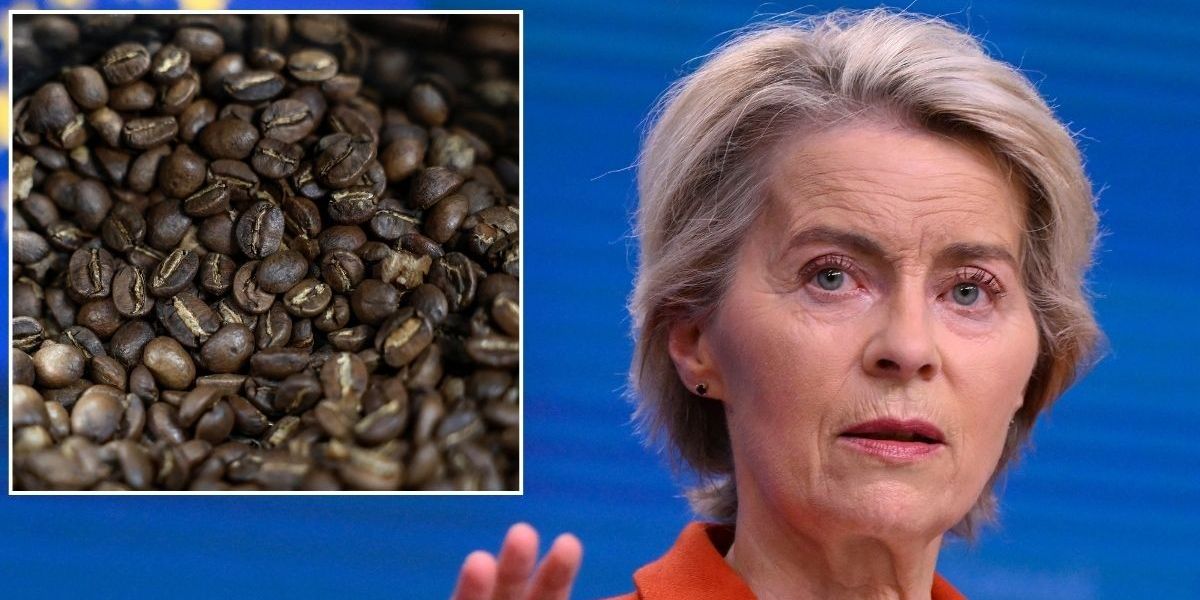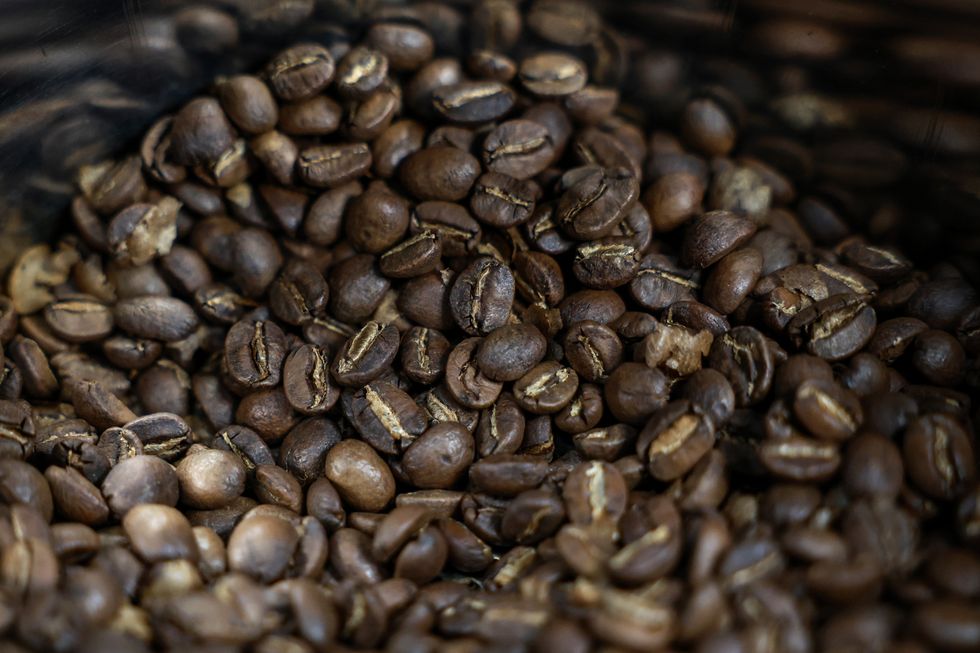‘Meddling Brussels bureaucrats!’ EU declares coffee ‘dangerous’ as ‘ridiculous’ ban mirrors crisp clampdown

The European Union has declared coffee “harmful to humans” in a new regulation that bans the use of caffeine as a pesticide.
Brussels officials cited scientific evidence claiming caffeine is harmful when swallowed, in a report supporting the ban on using the substance to kill snails and slugs in vegetable patches.
The controversial ruling has sparked concerns that EU regulations could eventually target coffee consumption, a cornerstone of European daily life.
The EU report highlighted multiple health concerns associated with caffeine consumption.
Ursula von der Leyen
GETTY
According to Brussels officials, caffeine can cause adverse effects on heart function and disrupt the body’s hydration levels and temperature regulation.
The substance was also linked to anxiety and sleep disorders.
The report noted there was insufficient research to determine risks for people working with caffeine or living near processing facilities.
Anders Vistisen, Danish MEP and chief whip of Patriots for Europe, condemned the regulation as “more unwelcome and needless inference from meddling bureaucrats in Brussels.”
“What is this all leading to? Are they seriously going to eventually force us to drink decaffeinated coffee? Its becoming ridiculous,” he said.
LATEST DEVELOPMENTS:

Coffee beans
GETTY
Vistisen drew parallels with other lifestyle choices, stating: “Nobody thinks smoking and whiskey are good for you, but they add pleasure to many peoples lives.”
The regulation echoes a previous EU controversy over Danish pastries, where cinnamon rolls had to be reclassified as “traditional” food.
This reclassification was necessary to avoid EU limits on coumarin, a potentially toxic compound found in cinnamon.
“A few years ago, the EU wished to ban cinnamon on Danish pastries and the bakers union had to wrangle a get-out clause,” Vistisen said.

Danish People’s Party member Anders Vistisen delivers a speech at a rally of European nationalists ahead of European elections
GETTY
“It would suit everyone much better if many of these matters were left to national competence and personal choice.”
Similar restrictions have impacted other areas of the food industry across the EU.
Recent bans on titanium dioxide and various food colourings have forced bakers to make difficult choices.
Manufacturers have had to either withdraw products from the EU market entirely or substantially modify their recipes to comply with regulations.
Related
A New Book Argues That What Happens in Europe Doesn’t…
Remaking the World: European Distinctiveness and the Transformation of Politics, Culture, and the Economy by Jerrold Seigel “No issue in world
Poland plans military training for every adult male amid growing…
Poland’s prime minister, Donald Tusk, has said his government is working on a plan to prepare large-scale military training for every adult male in response t
2025 European Athletics Indoor Championships: Ditaji Kambundji secures women’s 60m…
Switzerland’s Ditaji Kambundji walked away from the 2025 European Athletics Indoor Championships in Apeldoorn on 7 March with much more than her first Europea
Takeaways from the EU’s landmark security summit after Trump said…
BRUSSELS (AP) — European Union leaders are trumpeting their endorsement of a plan to free up hundreds of billions of








